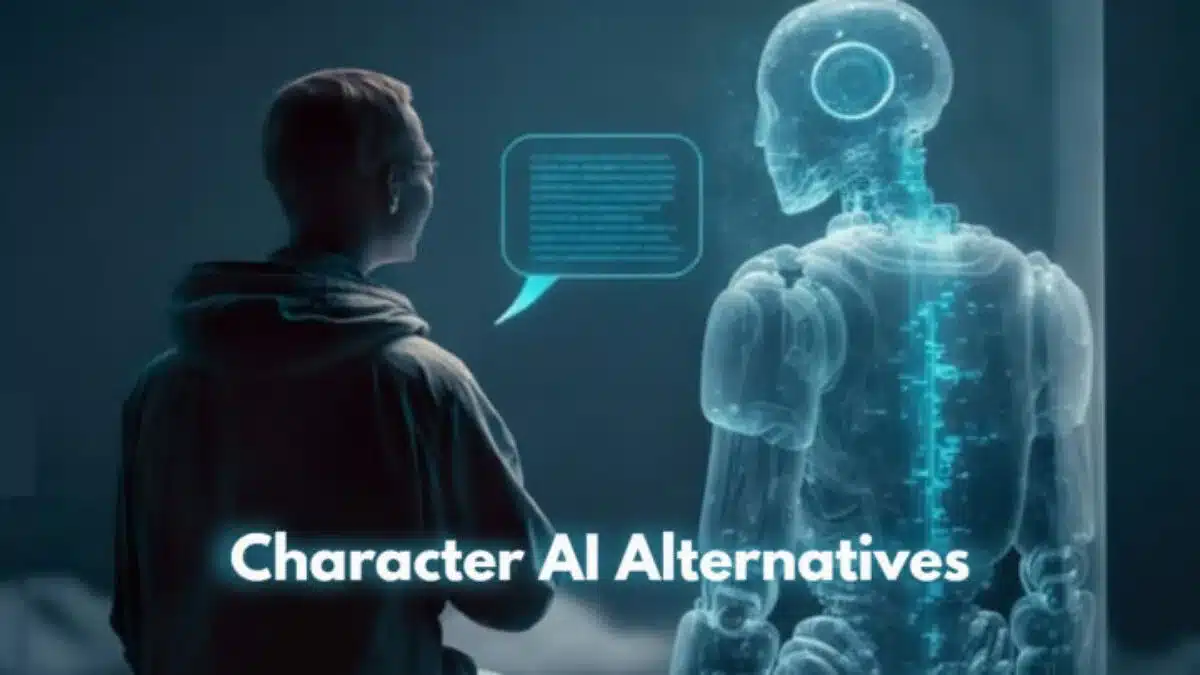In recent years, the realm of artificial intelligence has witnessed remarkable advancements, particularly in the field of Character AI Alternative. From virtual assistants to chatbots, character AI has become increasingly prevalent in various applications, serving as digital companions, customer service representatives, and even entertainers. However, as the demand for character AI continues to grow, so does the need for alternative solutions that offer unique capabilities and address existing limitations.
The Rise of Character AI: A Brief Overview
Character AI refers to the use of artificial intelligence technology to create virtual characters that can interact with users in a human-like manner. These characters are often designed to simulate human behavior, emotions, and speech patterns, providing users with a more engaging and personalized experience. The proliferation of character AI can be attributed to advancements in natural language processing, machine learning, and conversational design, which have enabled developers to create increasingly sophisticated virtual characters.
Limitations of Traditional Character AI Alternative
While traditional Character AI Alternative has made significant strides in mimicking human-like interactions, it still faces several limitations. One of the primary challenges is the lack of genuine emotional intelligence, as virtual characters often struggle to understand and respond appropriately to complex human emotions. Additionally, traditional character AI may exhibit biases or inaccuracies in their responses, leading to suboptimal user experiences.
Exploring Alternative Solutions
In response to these limitations, researchers and developers are exploring alternative solutions to enhance the capabilities of Character AI Alternative. One approach involves integrating emotional intelligence algorithms into virtual characters, allowing them to better understand and empathize with users’ emotions. By leveraging sentiment analysis and affective computing techniques, these enhanced virtual characters can provide more nuanced and empathetic responses, fostering deeper connections with users.
Enhanced Multimodal Capabilities
Another alternative solution involves incorporating multimodal capabilities into Character AI Alternative, enabling them to interact with users through various channels, including voice, text, and gestures. This multifaceted approach enhances the versatility of virtual characters, making them more adaptable to different communication preferences and contexts.

Hybrid Character AI Models
Furthermore, researchers are exploring the potential of hybrid Character AI Alternative models that combine the strengths of rule-based systems and machine learning algorithms. By integrating predefined rules with data-driven learning capabilities, these hybrid models can achieve a balance between consistency and adaptability, offering more robust and contextually aware interactions.
Challenges and Considerations
Despite the promising potential of alternative character AI solutions, several challenges and considerations must be addressed. Ensuring ethical and responsible use of AI remains paramount, particularly concerning privacy, data security, and algorithmic biases. Additionally, the development of alternative character AI solutions requires interdisciplinary collaboration among researchers, designers, psychologists, and ethicists to create ethically sound and socially responsible virtual characters.
Moreover, the scalability and computational complexity of alternative character AI models pose technical challenges that must be overcome to achieve widespread adoption. Advancements in cloud computing, edge computing, and distributed systems are essential to support the deployment and operation of complex character AI models across various platforms and devices.
Future Directions
As the field of Character AI Alternative continues to evolve, future research and development efforts are expected to focus on enhancing the realism, adaptability, and ethical considerations of virtual characters. Advancements in areas such as deep learning, affective computing, and human-computer interaction will play a crucial role in shaping the future of character AI.
Furthermore, the integration of character AI into emerging technologies such as virtual reality, augmented reality, and the metaverse holds immense potential for creating immersive and interactive experiences. By leveraging the synergies between character AI and these technologies, developers can unlock new possibilities for entertainment, education, healthcare, and beyond.
The Evolution of Character AI Alternative: A Journey into the Future
Character AI Alternative, an innovative application of artificial intelligence technology, has undergone significant evolution in recent years. From its early iterations as basic virtual assistants to the sophisticated and lifelike entities we encounter today, character AI has transformed the way we interact with technology. As we look ahead, the future of character AI promises even greater advancements and capabilities, shaping the landscape of human-computer interaction in profound ways.
Personalized Experiences Through Adaptive AI
One of the key areas of focus in the future development of character AI is personalization. By leveraging adaptive AI algorithms and user data analytics, virtual characters can tailor their interactions to individual preferences, behaviors, and needs. This level of personalization fosters deeper engagement and connection between users and virtual characters, enhancing the overall user experience.
Embracing Diversity and Inclusivity
Another important aspect of future Character AI Alternative is the integration of diversity and inclusivity. As virtual characters become more prevalent in various domains, it’s essential to ensure representation and inclusivity across different demographics, cultures, and identities. By designing virtual characters that reflect the diversity of the real world, developers can create more inclusive and welcoming digital environments.
Empowering Virtual Characters with Emotional Intelligence
Emotional intelligence is poised to play a significant role in the future of Character AI Alternative. By imbuing virtual characters with the ability to recognize and respond to human emotions, developers can create more empathetic and emotionally intelligent interactions. This capability enhances the authenticity of virtual characters’ responses, fostering deeper connections and emotional resonance with users.
Humanizing Interactions Through Natural Language Processing
Advancements in natural language processing are driving the humanization of interactions with virtual characters. Future character AI systems will boast improved natural language processing capabilities, enabling more fluid and natural conversations between users and virtual characters. This enhanced natural language understanding enhances the user experience, making interactions with virtual characters feel more intuitive and lifelike.
Ethical and Responsible AI Design
As Character AI Alternative continues to evolve, ethical and responsible AI design principles will be paramount. Developers must prioritize transparency, accountability, and fairness in the design and deployment of virtual characters. This includes addressing biases in AI algorithms, ensuring user privacy and data protection, and mitigating potential risks associated with AI-powered interactions.
Character AI Alternative: Conclusion
The exploration of Character AI Alternative represents an exciting frontier in artificial intelligence research and development. By addressing the limitations of traditional character AI and embracing innovative approaches, researchers and developers can create virtual characters that offer more engaging, empathetic, and adaptable interactions. As the field continues to advance, the future of character AI holds immense promise for transforming the way humans interact with intelligent digital entities, ushering in a new era of personalized and immersive experiences.
Frequently Asked Questions (FAQs) About Character AI Alternative
Q1: What is character AI, and how does it differ from traditional AI applications?
A1: Character AI refers to artificial intelligence technology used to create virtual characters or entities that interact with users in lifelike ways. Unlike traditional AI applications focused on specific tasks or functions, character AI emphasizes natural and human-like interactions.
Q2: How does Character AI Alternative personalize user experiences?
A2: Character AI leverages adaptive algorithms and user data analytics to personalize interactions based on individual preferences, behaviors, and needs. This personalization enhances engagement and fosters deeper connections between users and virtual characters.
Q3: What role does emotional intelligence play in the future of character AI?
A3: Emotional intelligence is crucial for future character AI, as it enables virtual characters to recognize and respond to human emotions. By imbuing virtual characters with emotional intelligence, developers aim to create more empathetic and authentic interactions with users.
Q4: How does character AI contribute to diversity and inclusivity?
A4: Character AI promotes diversity and inclusivity by designing virtual characters that represent various demographics, cultures, and identities. This ensures that digital environments are inclusive and welcoming to users from diverse backgrounds.
Q5: What ethical considerations are important in the design of character AI?
A5: Ethical considerations in character AI design include transparency, accountability, fairness, and user privacy. Developers must address biases in AI algorithms, protect user data, and mitigate potential risks associated with AI-powered interactions.
Q6: How does natural language processing enhance interactions with virtual characters?
A6: Natural language processing (NLP) improves interactions with virtual characters by enabling more fluid and natural conversations. Advanced NLP capabilities make interactions feel intuitive and lifelike, enhancing the overall user experience.
Q7: What are some potential applications of character AI in various domains?
A7: Character AI has diverse applications across domains such as entertainment, education, customer service, healthcare, and more. Virtual characters can assist users in learning, provide customer support, offer companionship, and facilitate therapeutic interventions.
Q8: How can developers ensure responsible AI design in character AI development?
A8: Developers can ensure responsible AI design by prioritizing transparency, accountability, fairness, and user consent in the design and deployment of virtual characters. This includes addressing biases, protecting user privacy, and adhering to ethical guidelines.
Q9: What are the potential benefits of character AI for users and organizations?
A9: Character AI offers benefits such as personalized experiences, enhanced engagement, improved user satisfaction, increased efficiency in customer service, and opportunities for innovative applications across various domains.
Q10: What are some challenges and limitations of character AI that developers need to consider?
A10: Challenges and limitations of character AI include technological limitations in creating truly lifelike interactions, ethical concerns related to user privacy and data protection, and the need for ongoing research and development to address evolving user needs and expectations.

Crafting Daily Lifestyle Narratives Across News and Business Horizons
Meet Joseph Tucker, a versatile blogger who navigates the intricate landscapes of lifestyle, news, business, and beyond. With a keen eye for detail and a passion for diverse niches, Joseph’s blogs are a testament to his ability to seamlessly blend lifestyle insights with the latest news and business trends. Whether offering practical lifestyle tips, dissecting current events, or unraveling the dynamics of the business world, Joseph’s writing invites readers to explore a rich tapestry of topics, where every blog post adds a new layer to our understanding of modern living. Mail: [email protected]
